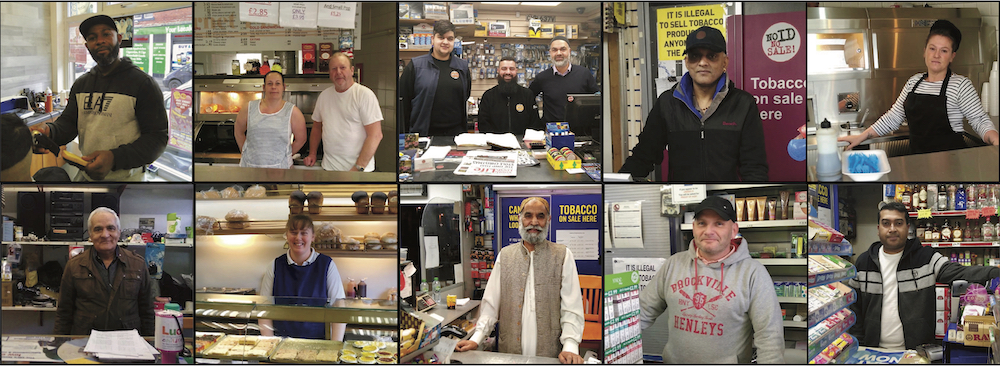
What’s the future for independent shops in south Leeds? Small traders speak out
“I love running this shop – it’s so much more than just a business. It’s not just a conveyor belt of transactions, it’s about looking out for the local community. But it’s a battle too: small businesses are vulnerable, competing against the Big Boys” (Zab, a shopkeeper in Beeston).
“I talk with a lot of local business owners, most of us have seen a steady decline over the past five years, and several have closed in just the past few months. But it would be such a loss to our communities if all the independent stores disappear” (Steve, a shopkeeper in Hunslet).
South Leeds Life has this month been out talking with local independent shops and businesses, and their customers, about their contribution to our communities, and – in many cases – about their battles for survival.
The UK high street is undoubtedly struggling. Of a total 275,000 shops nationally, about 40,000 shops close annually, and only 35,000 open – making a net loss of 5,000 each year.
And whilst the woes of the big chains are well documented in the national press, independent businesses are hardest hit: of those 40,000 annual closures, an estimated 35,000 are independents. Yorkshire is one of the worst-hit regions, with a net annual loss of 460 independent stores in 2017.
Uday, whose family have run a newsagent in Beeston Hill for over 30 years, grimly told us:
“Like many traditional shops, our days are numbered. The supermarkets play lots of games, and the system’s unfairly loaded against us – so we’re snookered, stuck in a vicious circle.”
Other traders spoke of factors like online shopping, rising costs (which some partly attributed to Brexit), and the wider community having less and less money to spend. And some named particular issues: Ejaz in Beeston criticised the legal loophole that allows unregulated ‘truck traders’ to drive into the community every day and sell fresh produce from the back of lorries – and undercut local shops.
Some we spoke with weren’t downbeat, insisting that business was “steady”. But what they all agreed on, and what we heard from dozens of customers, was the invaluable role many of these stores play in the life of the local area.
“Our local cafe offers such a lifeline to isolated people, including the elderly, and a local homeless lady” (Brenda in Hunslet Moor).
“There’s a personal touch here, and long-term relationships, that you don’t get in big stores” (Roy in Beeston).
“I like meeting different people, and there’s such a variety of foods” (Maria in Beeston).
“Our shop’s not just a shop, it’s a community hub. Loads of new people come in asking for help: we’re like the Holbeck Tourist Board!” (Laura in Holbeck).
Not only that, the national New Economics Foundation (NEF) have long argued the hard benefits of independent retail.
These include: more jobs (each supermarket on average generates 270+ job losses); a typically smaller environmental impact; better local accountability and democracy; and stronger local economies.
It’s estimated that money spent at a local store puts up to twice as much into the local economy as money spent at a chain store: except for expenses like wages, chain stores rarely invest in local supply chains, and their profits disappear away to distant shareholders.
Groups like the NEF are campaigning for government – local and national – to take supportive action. And local traders are pulling together and working hard to adapt and cooperate – with new initiatives including the Dewsbury Road Town Team.
But to quote Steve in Hunslet: “We’re trying to offer different stuff, coming up with different ideas – but we really need support. If everyone spent just a few pounds in their local store each week, it’d make such a difference.”
And Zab in Beeston concluded: “Many of our customers depend on us – but we’re totally dependent on them too.”


